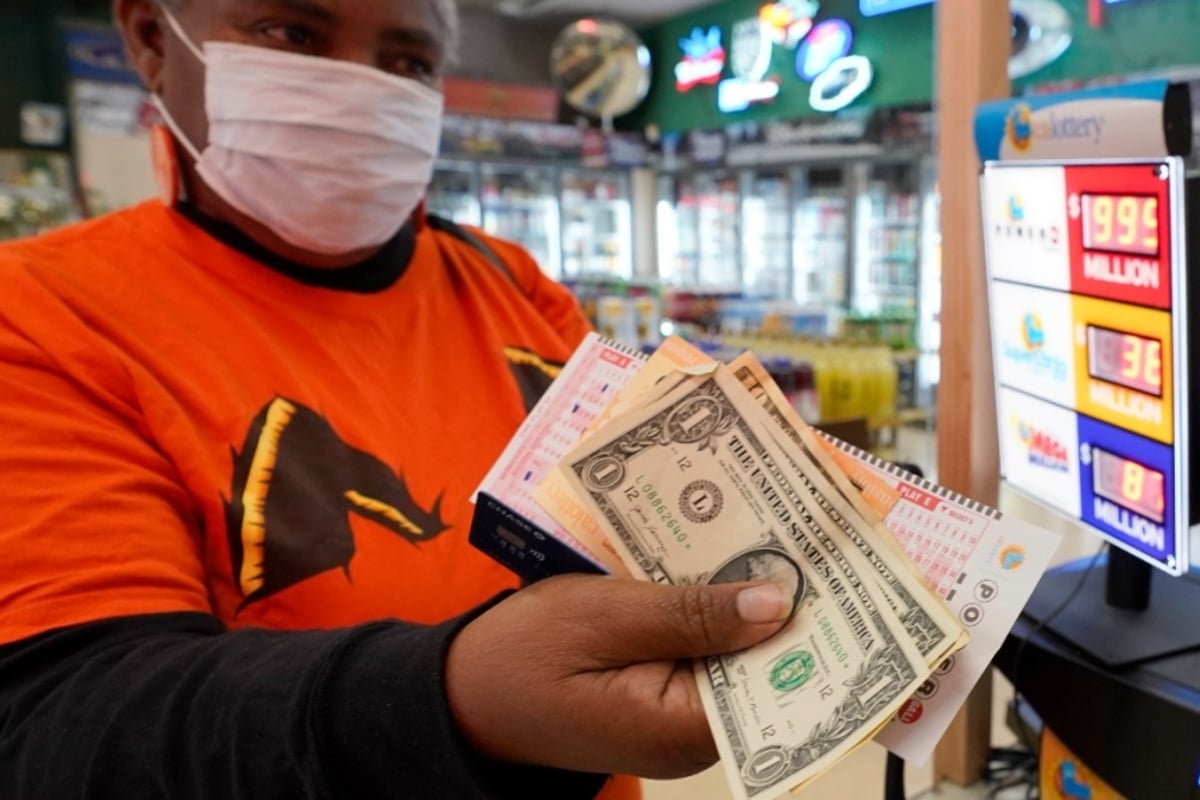Posted on: November 1, 2022, 11:09h.
Last updated on: November 1, 2022, 11:49h.
The Powerball Halloween drawing provided players holding more than 5.4 million tickets with approximately $59.5 million in financial treats. But the October 31 game was otherwise a trick.

The Powerball jackpot hasn’t been hit since August 3, when a ticket sold in Pennsylvania won $206.9 million. Since then, the interstate lottery game has held 38 drawings without a single ticket matching the five white balls and red Powerball.
The jackpot rolls over for Powerball’s next drawing on Wednesday night, November 2. Lottery officials estimate the jackpot will be around $1.2 billion, with a one-time cash option of $596.7 million.
To win the prize, which is the second-richest jackpot in Powerball history, a ticket will need to overcome the dismal one in 292.5 million odds of matching all six winning numbers.
Ten tickets on Monday night matched the five white balls, but not the Powerball, to win $1 million each. Three of those ticket holders purchased the $1 add-on Power Play that doubled their wins to $2 million each.
The overall odds of winning a Powerball prize are one in about 25.
Historic Jackpot
The Powerball run is taking the jackpot to nearly unmatched heights. Wednesday’s drawing is the largest Powerball prize in more than six years. At $1.2 billion, the current Powerball jackpot is also the fourth- richest lottery prize in US history.
Top 5 US Lottery Jackpots
- $1.586B — 3 winners — Powerball — Jan. 2016
- $1.537B — 1 winner — Mega Millions — Oct. 2018
- $1.337B — 1 winner — Mega Millions — July 2022
- $1.2B — TBD — Powerball — Nov. 2022
- $1.05B — 1 winner — Mega Millions — Jan. 2021
Only five times has a US lottery offered a jackpot upwards of 10 digits.
Guaranteed Winner
While millions of players will try their Powerball luck again with a $2 ticket, there is one guaranteed winner whenever the life-changing jackpot is finally hit: the US government.
The winning ticket, regardless of where it’s bought, will be subject to federal taxes before the lucky winner ever sees a dime. The US government levies an effective tax of 37% on personal income in excess of $539,901 in a single calendar year.
If a single winner of Wednesday night’s $1.2 billion Powerball jackpot chooses the full amount over a 30-year annuity, they would stand to receive 30 average annual payments of around $40 million. But before the check is cut, the Multi-State Lottery Association, which operates Powerball, would first take out the feds’ 37% share of about $14.76 million.
The federal tax would reduce the 30 annual distributions to around $25.23 million — or about $757 million over the life of the 30-year annuity.
If a single winner opts for the one-time lump payment, which is the preferred payout method for Powerball and Mega Millions jackpot winners, the estimated cash sum of $596.7 million would be reduced to $375.9 million.
The winnings could then also be subject to state taxes. Of the 50 states, 36 states levy a tax on lottery wins. The average rate among lottery-taxing states is just shy of 6%.
